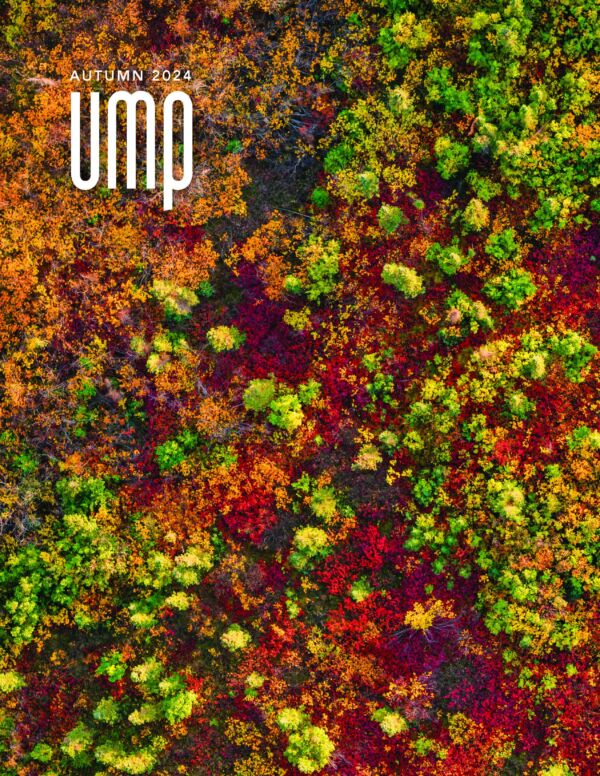On Friday, October 19, we launched Rooster Town: The History of an Urban Metis Community, 1901–1961 in to a standing-room-only crowd in Winnipeg.
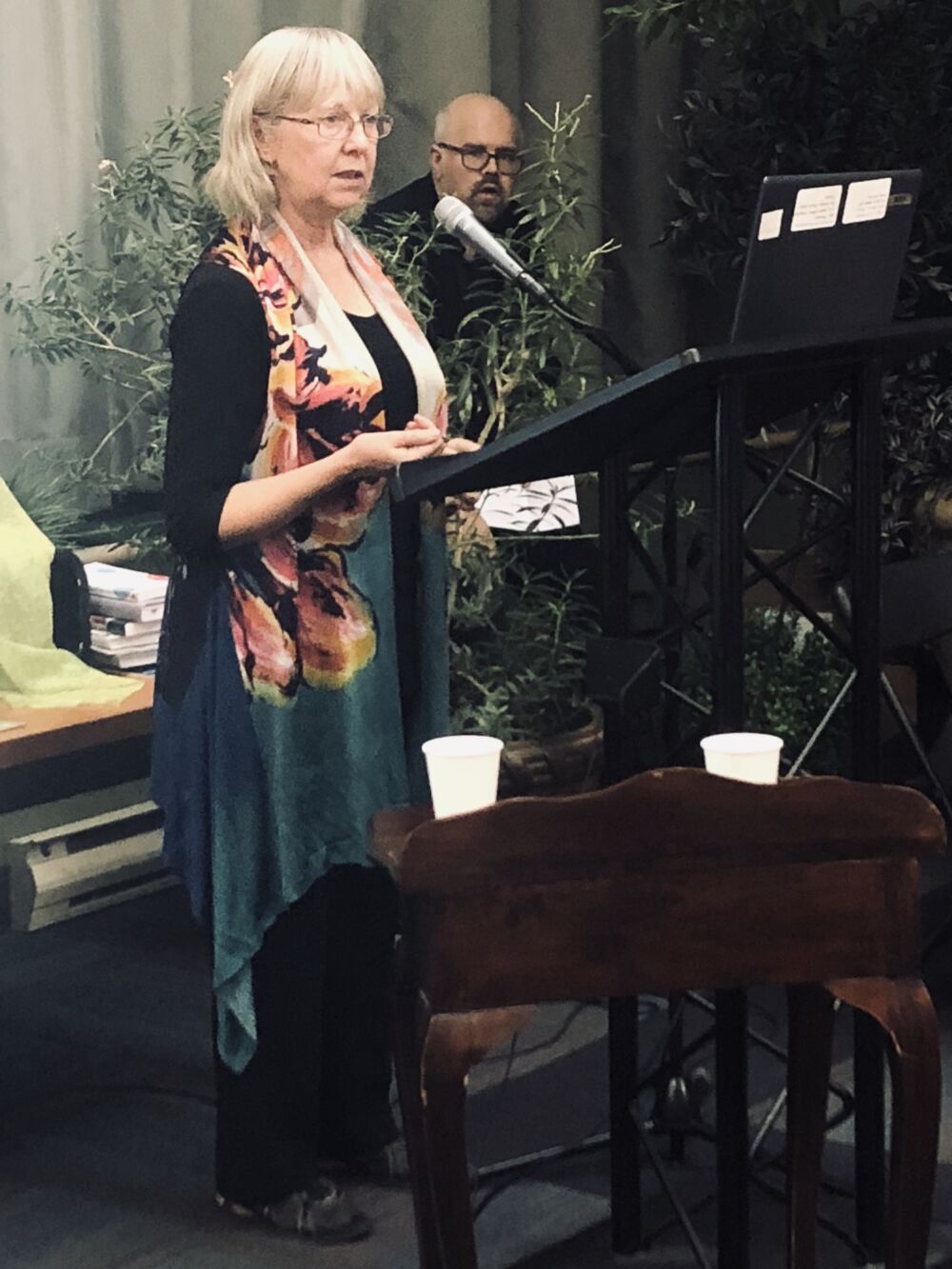
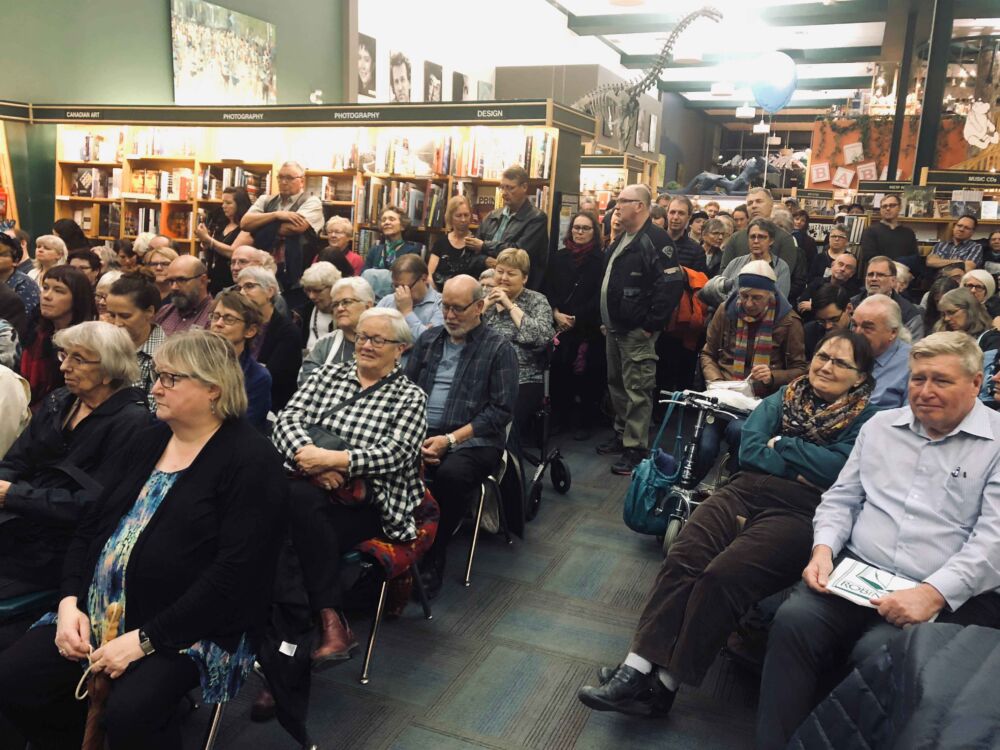
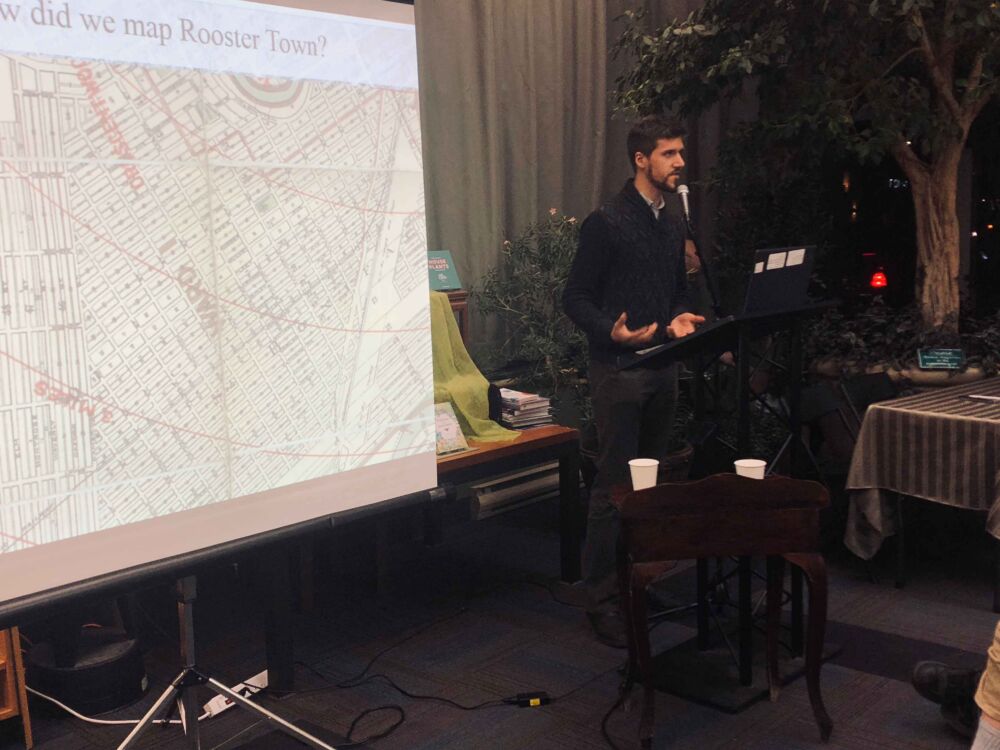
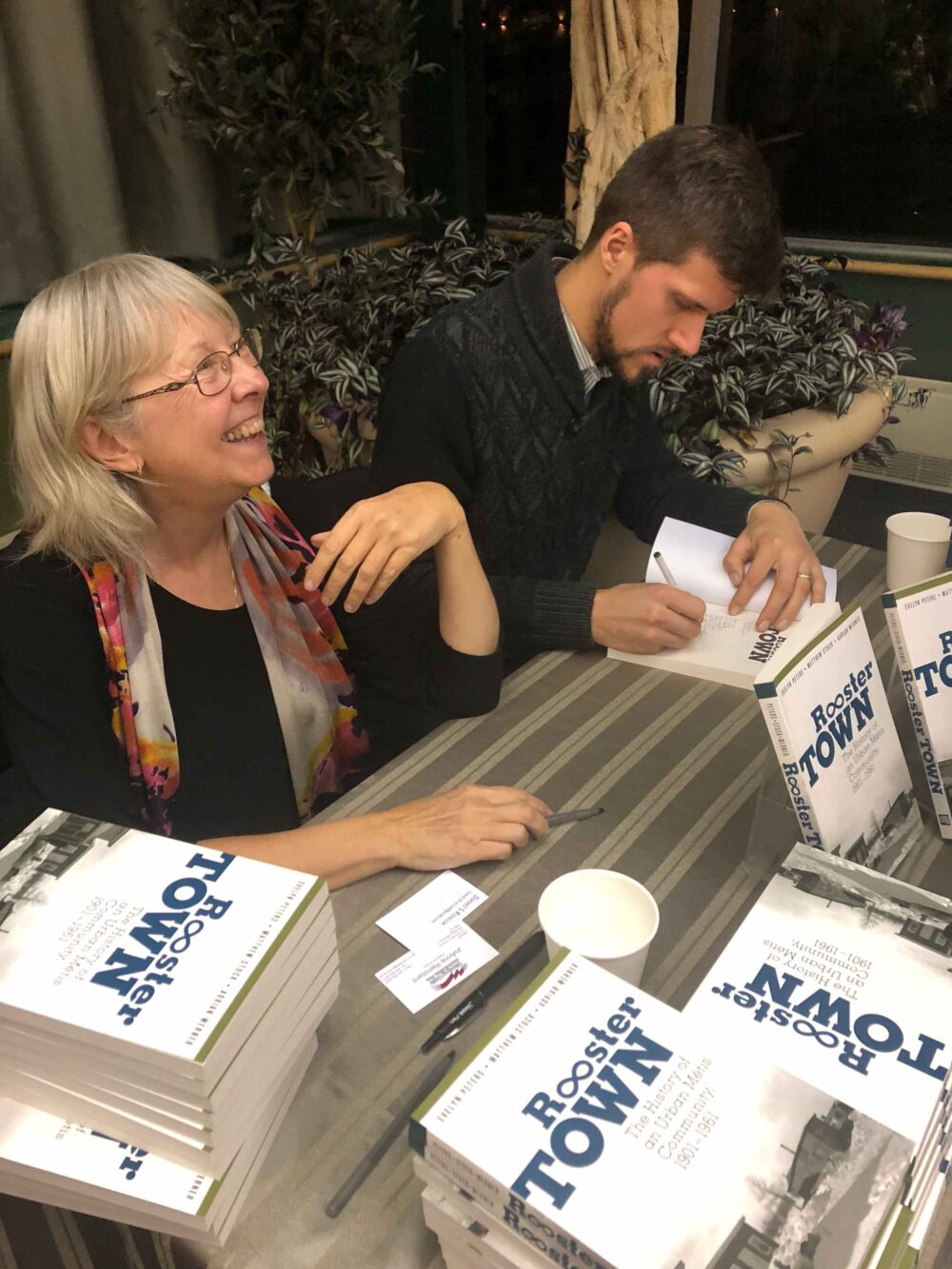
Authors Evelyn Peters and Adrian Werner traveled to Winnipeg from Victoria and Saskatoon for the standing-room-only event at at McNally Robinson Booksellers, which was significant because the Grant Park Mall that houses McNally’s is built on the former site of Rooster Town.
Ian August, a Métis artist based in Winnipeg who has been working on a public art piece commissioned by the Winnipeg Arts Council commemorating Rooster Town, spoke at the beginning of the launch.
Also present were members of the Sais and Laramee families, who worked with Evelyn on this book, sharing photos and stories of the community.
McNally Robinson Booksellers estimates that 200+ people attended the launch, which is reflected in Rooster Town ranking #1 in the paperback non-fiction of this week’s bestseller list. We are grateful for the support of Winnipeg readers and thinkers and we are especially grateful to the people who gave up their chairs to elderly people.
If you missed the launch, Michael Elves of UMFM’s Turning Pages interviewed Evelyn on Thursday October 18.
In addition, Niigaan Sinclair’s column in the Winnipeg Free Press on Monday October 15, entitled City newspapers hastened demise of Rooster Town is well worth reading.
About the Book
Melonville. Smokey Hollow. Bannock Town. Fort Tuyau. Little Chicago. Mud Flats. Pumpville. Tintown. La Coulee. These were some of the names given to Métis communities at the edges of urban areas in Manitoba. Rooster Town, which was on the outskirts of southwest Winnipeg, endured from 1901 to 1961.
Those years in Winnipeg were characterized by the twin pressures of depression and inflation, chronic housing shortages, and a spotty social support network. At the city’s edge, Rooster Town grew without city services as rural Métis arrived to participate in the urban economy and build their own houses while keeping Métis culture and community as a central part of their lives.
In other growing settler cities, the Indigenous experience was largely characterized by removal and confinement. But the continuing presence of Métis living and working in the city, and the establishment of Rooster Town itself, made the Winnipeg experience unique.
Rooster Town documents the story of a community rooted in kinship, culture, and historical circumstance, whose residents existed unofficially in the cracks of municipal bureaucracy, while navigating the legacy of settler colonialism and the demands of modernity and urbanization.
About the Presenters
Evelyn Peters is an urban social geographer whose research has focused on First Nations and Métis people in cities. She taught in the University of Winnipeg’s Department of Urban and Inner-City Studies, where she held a Canada Research Chair in Inner-City Issues, Community Learning, and Engagement.
Adrian Werner is a GIS analyst whose work has included research in urban form and urban history.
Ian August is a Métis artist based in Winnipeg who received a BFA honours from the University of Manitoba’s School of Art and a MFA from York University. His work has been the subject of many solo exhibitions and included in numerous group exhibitions. Most recently, he has been working on a public art piece commissioned by the Winnipeg Arts Council commemorating Rooster Town.
Posted by U of M Press
October 23, 2018
Categorized as In the News, Events
Tagged books, colonialism, community, history, indigenous, launch, metis, winnipeg
Saskatoon launch of Toward a New Ethnohistory! "Rooster Town emerges from the shadows"
